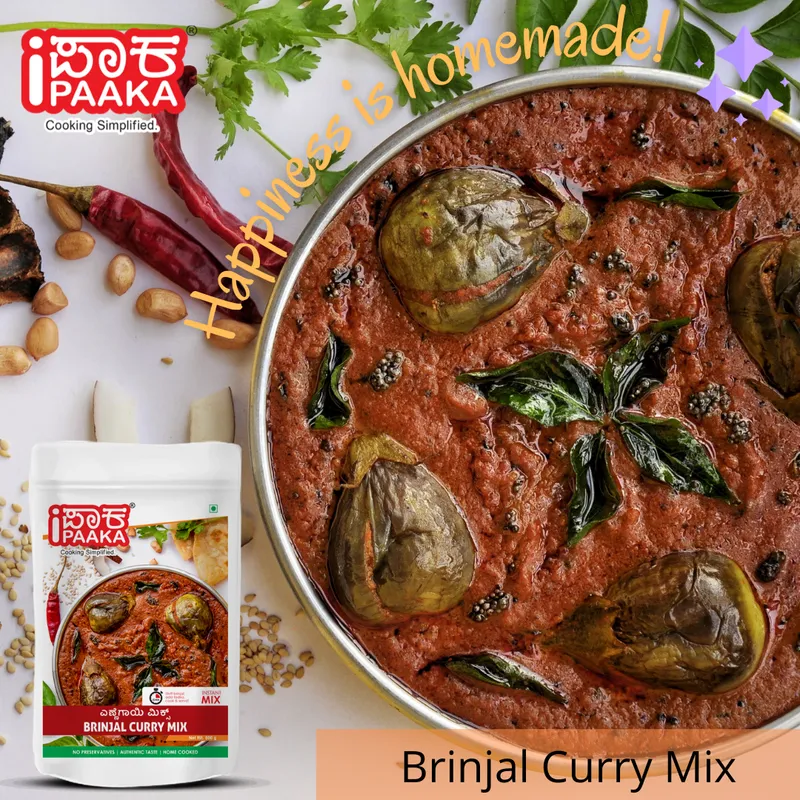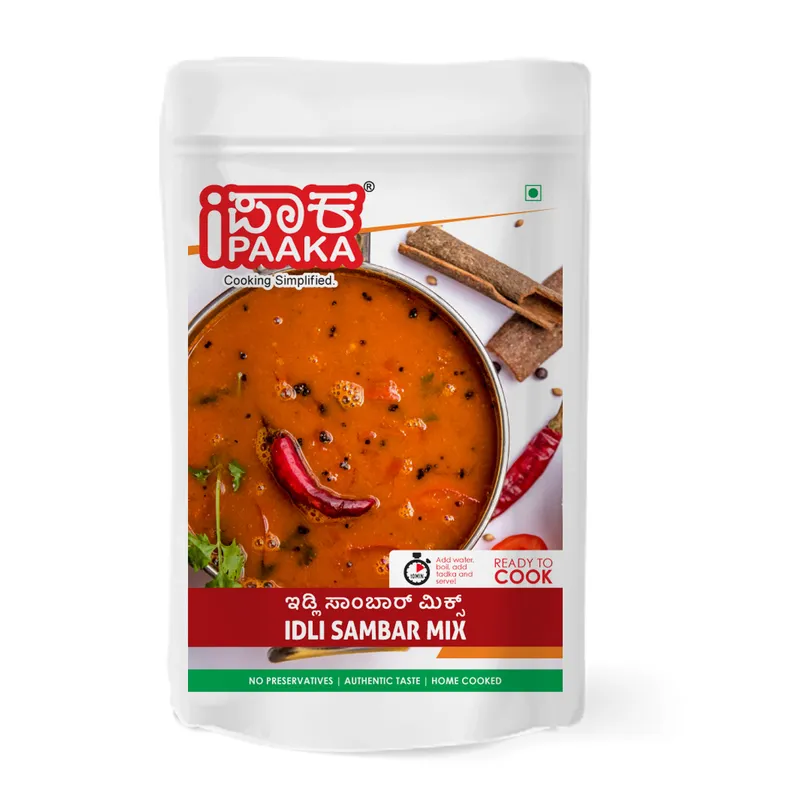Why this techie became an entrepreneur with her brand of ready-to-cook South Indian meals
Engineer Bindu Jayaram founded iPaaka, a brand of preservative-free instant mixes and ready-to-cook/eat South Indian foods, to make meal prep convenient and provide delicious, healthy options.
Like every working woman, battling a long work day, Bengaluru traffic, and returning home to cook a fresh meal was becoming cumbersome for Bindu Jayaram.
Ordering in every day was not an option, and ready-to-eat meals lacked taste and nutrition. This was reinforced when Bindu visited Hong Kong on a personal trip and depended on popular ready-to-eat brands due to the lack of vegetarian options.

“I became sick and remained so throughout the trip. After returning, I started research on processed foods. That, coupled with the thought that I could convert my mum’s authentic Kannada recipes into ready-to-cook/eat format, became the pain point for iPaaka Foods in 2018,” says Bindu, an engineer-turned-entrepreneur.
Loosely translated, iPaaka means “I can cook”.
Recipes from a mother’s kitchen
Bindu’s mother had long experimented in her kitchen and introduced her to homemade instant mixes, which kept the authentic taste and aroma intact.
“I would label the jars I stored the mix in as ‘ready-to-eat rasam’ or ‘ready-to-eat sambhar’. Once, while I was cooking tomato dal rasam for dinner, I realised I had labelled the jars all wrong.
"I had my “aha” moment then as it wasn’t ready-to-eat but an “instant mix” for rasam. I realised that at a subconscious level this was something I was looking for in the market,” Bindu recalls.
A lot of experimenting and improvising on her mother’s recipes followed. In 2016, while on maternity leave, Bindu decided not go back to a full-time job but instead start something on own. Along with her mother, she started experimenting on three dishes - tomato dal rasam, idli-sambar, and brinjal curry mix (an authentic Karnataka recipe) - in her home kitchen.
Soon, she registered the company, designed the logo, label, and packaging, and produced 100 sample packets of each product. The mixes were 100 percent preservative-free, made from natural ingredients, and manufactured in small batches.
“I distributed them to family and friends, but realised I had to take their feedback with a pinch of salt as they would be biased. So, I approached a supermarket near my home to give away the samples to regular customers and enable feedback. I also stood on the road, and asked people randomly if they would like to try my products,” she says.
An evolving brand
After a week, Bindu called them for feedback and 80 percent of the people said they liked the product and offered constructive criticism. She soon converted a three-bedroom apartment into a unit and hired three people to help with production.
iPaaka registered its trademark as a brand in February 2019 and production crossed 1 tonne by August the same year. It was available exclusively on Amazon and Qtrove initially.
“We shut down operations for a month in 2020 due to the lockdown but used the time to work on our packaging and build our own website which went live in October,” says Bindu.
In June last year, iPaaka was invited by Amazon to join its Launchpad programme.
“Joining the Launchpad programme helped us double our sales and we have now crossed 2.5 tonnes of 14 types of food mixes. An account manager from Amazon helps us in analysing metrics and gives us insight into who is buying from where and how we can market our products better,” she adds.
The popular products includes mixes like puliyogare mix, spicy dose mix, upma, masala poha, akki roti, basundi, among others. It is priced in the medium-premium segment, neither too low or too high, “affordable to the working population”.
Figuring out what works

Amid the second wave of COVID-19, Bindu had to again shut down iPaaka for a month. Now that her employees have been vaccinated, the brand is set to resume operations soon.
The product has seen good response from Tier 1, 2, and 3 cities, but the challenge comes from iPaaka being an entirely online brand.
“Being dependent on online sales, it becomes difficult to understand why sales go down on Amazon or Flipkart, what are the reasons people are not buying etc. If we had a retail presence, business would be more diversified,” she says.
She plans to hire a senior marketing expert who will understand these metrics better and help the brand gain more traction online, as well as offline when they create a presence in physical stores.
Bootstrapped so far, Bindu started iPaaka with an investment of Rs 2 lakh and claims the startup has been growing by 2X every year.
She is at present working with exporters to ship products to Indians living in the US, Canada, Germany, France, and Australia.
“Going forward, I am looking to curate a wider range of recipes, launch new products, expand iPaaka’s retail presence in online grocery delivery platforms like Big Basket and SuprDaily in Tier 1 and 2 cities, diversify into bulk manufacturing, and work on B2B partnerships and collaborations,” Bindu says.
Edited by Teja Lele









